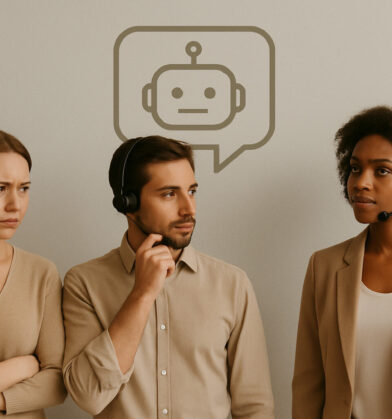Recently, in a conversation with the CEO of an e-commerce company, I heard something that I hear more and more often:
– “We had to shut down the chatbot. It was frustrating people more than it was helping them.”
And I'm not surprised. Many companies implement a single chatbot with the expectation that it can answer everything: resolve product questions, handle order issues, manage technical support, and even answer sales inquiries. But this strategy is like putting a single receptionist in charge of an entire department that includes customer service, support, sales, and logistics... without tools or support. The result: chaos, generic responses, and frustrated customers.
Table of contents

What is an MCP Agent?
An MCP Agent is not a chatbot that knows everything. It is an intelligent agent that understands what your customer needs and, based on that, directs them to the right specialized agent.
It is not always a human (although it can be). It can be another agent with experience in a very specific area.
For example, imagine you write to a natural cosmetics brand on WhatsApp:
– “Can I return a cream if I've already opened it?”
The MCP Agent detects that this is not a query about ingredients or product recommendations, but a question about the returns policy. So it redirects you to the agent who specializes in that topic, who responds quickly, clearly, and with empathy.
Now change the question:
– “I've received a broken product, and this is the second time. I'm fed up.”
Here, the MCP Agent identifies frustration and prioritizes human intervention to provide a sensitive and personalized response. This way, human resources are prioritized only when they are really needed.
It's not magic. It's intelligent architecture.
At Nucleoo, we have already implemented this solution for several clients, and it works very well. Why?
- Divide and conquer: each agent is only responsible for what they are good at.
- Prioritize the human aspect: it does not replace people, it frees up their time for cases that really need it.
- It improves the experience: service is faster, more natural, and frustration-free.
- It scales intelligently: you can add more specialized agents as needs grow.
The future is not a chatbot. It is an agent orchestrator.
MCP Agents are not theory. They are already working in very different sectors: from retail to educational platforms, and it doesn't matter if the channel is WhatsApp, web, or app. Every time we explain it, the response is usually the same:
“Of course! That makes sense.”
If your current chatbot offers generic answers, misdirects queries, or you've already deactivated it because it was more frustrating than helpful, the problem isn't the idea of automation, but the approach. You don't need a chatbot that knows everything: you need one that knows how to pass the ball to someone who does have the answer.
Want to see it in action?


